People often ask me whether it’s safe to give certain foods to chickens. I’m glad to see chicken keepers being responsible! Thankfully, chickens have a pretty good sense of what they can and cannot eat, but there are some tempting plants (and human foods!) out there that should never be offered to your flock.
I get it, though, it’s so tempting to toss every scrap out there for them to gobble up (chickens are excellent for reducing waste!), but some foods are best avoided. Below, I’ve compiled a brief list of items you should refrain from feeding your chickens.
Now, it’s worth noting that some people do feed their chickens foods from the “do not eat” list and claim no issues. However, I prefer to err on the side of caution and avoid these foods knowing they’re potentially harmful. Without further delay, let’s dive into the things to steer clear of when treating your chickens!
*Disclosure: This post may contain affiliate links to products (including Amazon). I’ll earn a small commission if you make a purchase through my link, at no additional cost to you! Regardless, I only link to products that I personally use on our homestead or believe in.
Foods That Are Toxic to Chickens
Thankfully, chickens can eat and will enjoy most foods and scraps that you throw their way, but there are a few that are on the NO list. Be sure to avoid giving these to your flock to ensure that they stay healthy and keep laying a bountiful amount of eggs for you!
Green potatoes and peels
Leftover potatoes are totally fine, but the green ones are a no-go! Green potatoes have high concentrations of solanine, which can be toxic. Solanine poisoning can lead to gastrointestinal, cutaneous, and nervous system disruption and in severe cases, death.
Avocado pits and peels
The green fleshy part of avocados is safe for chickens (they love it!), but the pits and peels contain the natural fungicide persin, which is highly toxic to birds. Exposure to persin can lead to breathing difficulties, rapid heart rate, lethargy, or sudden death.
The good news is that pits and peels are very tough and a chicken likely wouldn’t be able to consume it unless you purposely chopped it up for your flock. I’ve also found that the pits and peels have a hard time breaking down, even in a compost pile, so it’s one of the very few scraps that I do throw away.
Dry or uncooked beans
Dry or uncooked beans aren’t good for humans, and the same thing goes for chickens and any other monogastric animals! Dry or uncooked beans contain phytohemagglutinin, which can cause significant disruption of the microvilli structure and enzymatic activity within the small intestine.
This can lead to an initial response of diarrhea and loss of electrolytes, but over time can result in malnutrition, lethargy, weight loss, and poor egg-laying ability.
Onions
Onions (raw or cooked) are rich in an organosulfur compound called thiosulfinate, which breaks down into different types of disulfide. Disulfides are oxidizing agents that can lead to the rupturing of red blood cells in poultry and ultimately anemia, diarrhea, lethargy, and breathing difficulties. No thanks!
Toxicity can occur from ingesting a large amount of onions at once, or small amounts over a prolonged amount of time. Thankfully, a small amount of onion at one instance is rarely an issue since red blood cells are continuously being replaced. So don’t panic if it’s a one-time instance in small volumes!
Excess salt
While some salt is good for chickens (they need electrolytes, just like we do!), too much can be toxic. A lethal dose is 0.06 oz per pound of body weight, which comes out to be 1 1/2 tsp of salt for a 5 lb chicken.
That can add up quickly if you have salt blocks lying around for other livestock, so be sure to keep those in a secure location. If you live in a cold climate and regularly use rock salt to manage the ice on your driveway, that’s another thing to monitor.
Anything moldy or rotten
This one is pretty obvious, but it’s still important to mention! While chickens are a great way to utilize those extra scraps, they are still susceptible to fungal poisoning, or mycotoxicosis. The golden rule is don’t feed your chickens anything you wouldn’t eat! If it’s too far gone, toss it into the compost pile.
Chocolate
Chickens shouldn’t have chocolate, just like with dogs. Chocolate has theobromine, which is a purine alkaloid that can cause seizures, vomiting, or even death. It appears that toxicity is associated with high doses, however, and lower amounts may be tolerated.
While small amounts might be okay, who wants to waste delicious chocolate on their chickens anyway? Not me!
Junk food
While this one shouldn’t come as a surprise, it’s a good one to review. Junk food isn’t good for humans, and it’s not good for chickens, either! This includes ultra-processed foods, fried foods, high-sugar foods, or foods with artificial sweeteners.
Plants That Are Toxic to Chickens
Thankfully, poisoning from plants is pretty rare since toxic plants typically don’t taste very good. Therefore, chickens tend to avoid them as long as there are other tasty things around.
The most risky situation is if you were to toss some random plants into an enclosed run where there’s nothing else for them to peck at. In these situations, always be able to identify what you’re throwing in for your flock before doing so.
Toxic plants to chickens
- Black locust (sprouts, leaves, pods, seeds)
- Black nightshade (immature berries)
- Bladderpod (seeds)
- Camas (leaves, flower, stem, bulb)
- Castor bean (all parts, but especially the seed)
- Coffee senna (seeds)
- Coffee weed (seeds)
- Corn cockle (seeds)
- Cottonseed (seeds)
- Crotalaria (seeds, leaves, stems)
- Death cap mushrooms
- Horsenettle (berries, leaves)
- Jimson weed (all parts)
- Milkweed (leaves)
- Monkshood (all parts)
- Oak (leaves, acorns)
- Oleander (all parts)
- Poison hemlock (all parts)
- Pokeberry (berries)
- Rapeseed (seeds)
- Rattlebox (seeds)
- Rhubarb (leaves)
- Rosary pea (seeds)
- Sorghum (grain)
- Tobacco (leaves, stems)
- Vetch (seeds)
- Water hemlock (all parts)
- Yew (all parts)
Controversial Foods For Chickens
Apples
The flesh and skin of apples are a delicious and safe treat to feed your chickens, but what about the seeds? Apple seeds contain a compound called amygdalin, which is a cyanogenic glycoside. If the seed is left intact, it is completely harmless. However, if the seed is crushed (as it will be in the gizzard), then amygdalin can interact with digestive enzymes and release hydrogen cyanide.
The lethal dose of cyanide for chickens is 11.1 mg/kg, so a 7 lb chicken would need to consume between 66-264 seeds to reach toxicity (depending on how potent the seeds are). So, like with most things, moderation is key. I don’t bat an eye when I throw 1 apple core out to my entire flock.
Read ALL about it in my article: Can Chickens Eat Apples? What About the Seeds?
Garlic
While onions are on the no-no list because they contain large amounts of thiosulfinate, garlic didn’t make the cut because it contains much lower amounts. Therefore, garlic is likely fine in small amounts, just make sure your flock doesn’t overdo it.
Citrus fruits
Some people say that citrus should never be fed to chickens, while others claim that they’ve never had an issue in doing so. Hence, why it’s the controversial list.
What do I do? I’ve always thrown my leftover citrus peels into my compost bin and not to my flock. However, my flock eagerly picks through my compost bin for any tasty morsels. Have they ever eaten any? Maybe, but so far so good. Bottom line: I wouldn’t intentionally feed citrus to chickens, but I wouldn’t be entirely fearful of it, either.
Meat
This a controversial one, but it’s not so crazy to think about when you get back to the basics of chicken keeping. Meat provides an excellent source of protein in the winter when bugs are scarce. What do you think previous generations fed their flock for protein in the winter? It definitely wasn’t soy!
Chickens were given meat scraps and allowed to forage! Chickens are scavengers and if given free choice to roam in a diverse environment, they’ll go for a variety of things including:
- Worms and slugs
- Insects (mosquitos, ticks, etc.)
- Frogs and lizards
- Rodents
- Small birds
- Dead carcasses
- Larvae and undigested grains in manure
However, there are some key steps to reduce the risk of cannibalism in your flock and provide meat safely. Check out my in-depth article Do Chickens Eat Meat (Is it Safe?) to learn all about it!
Parsley
This one is a bit odd, but it’s worth mentioning as herbs are commonly offered to backyard flocks. If consumed in large amounts, parsley can cause sunburn in unfeathered areas due to an increase in sun sensitivity. This would only be of concern if your ladies are molting severely or have been getting too much attention from their resident rooster.
What to Do if Your Chicken Is Poisoned
If you catch a chicken enthusiastically gobbling down a toxic food, you can lessen its effects by flushing its system with a laxative. Common agents for chickens include activated charcoal, epsom salt, molasses, or milk powder.
*Please note that I am not a Veterinarian and this is not medical advice. You can obtain detailed information on treatments in my favorite book: The Chicken Health Handbook.
The Homesteading RD's Product Picks: | |
After a few health scares in my flock, I quickly purchased this book and it has been a lifesaver! Anything that could potentially come up in your flock is addressed in this book with practical solutions. Worth every penny! | |
Other Chicken Articles You’ll Love:
- Can Chickens Eat Blackberries? Are They Safe?
- Can Chickens Eat Grapes? Are They Safe?
- Can Chickens Eat Bananas? What About the Peel?
- Can Chickens Eat Celery? Is Raw or Cooked Best?
- How to Grow Chicken Fodder (And Save Money!)
Final Thoughts
By now you should have a good feel for what to avoid feeding your chickens! It’s important to remember that treats or kitchen scraps should complement a balanced chicken feed diet, not replace it entirely. They should be just that – treats. By ensuring your flock receives a nutritious diet, you’ll promote excellent egg production and support their longevity and overall health.
*Information in this article was referenced from personal experience and/or from my favorite chicken books Storey’s Guide to Raising Chickens and The Chicken Health Handbook unless otherwise noted.

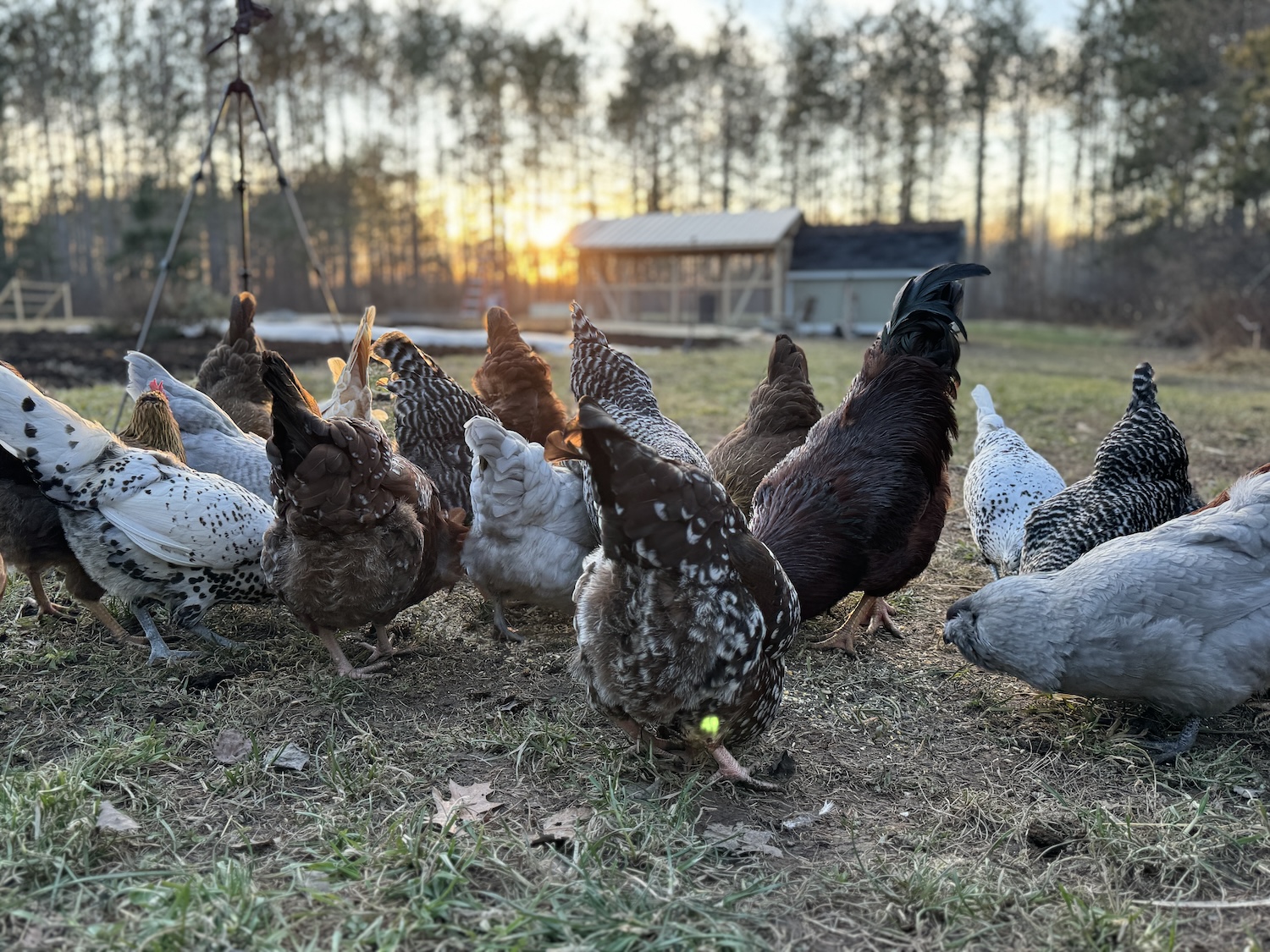
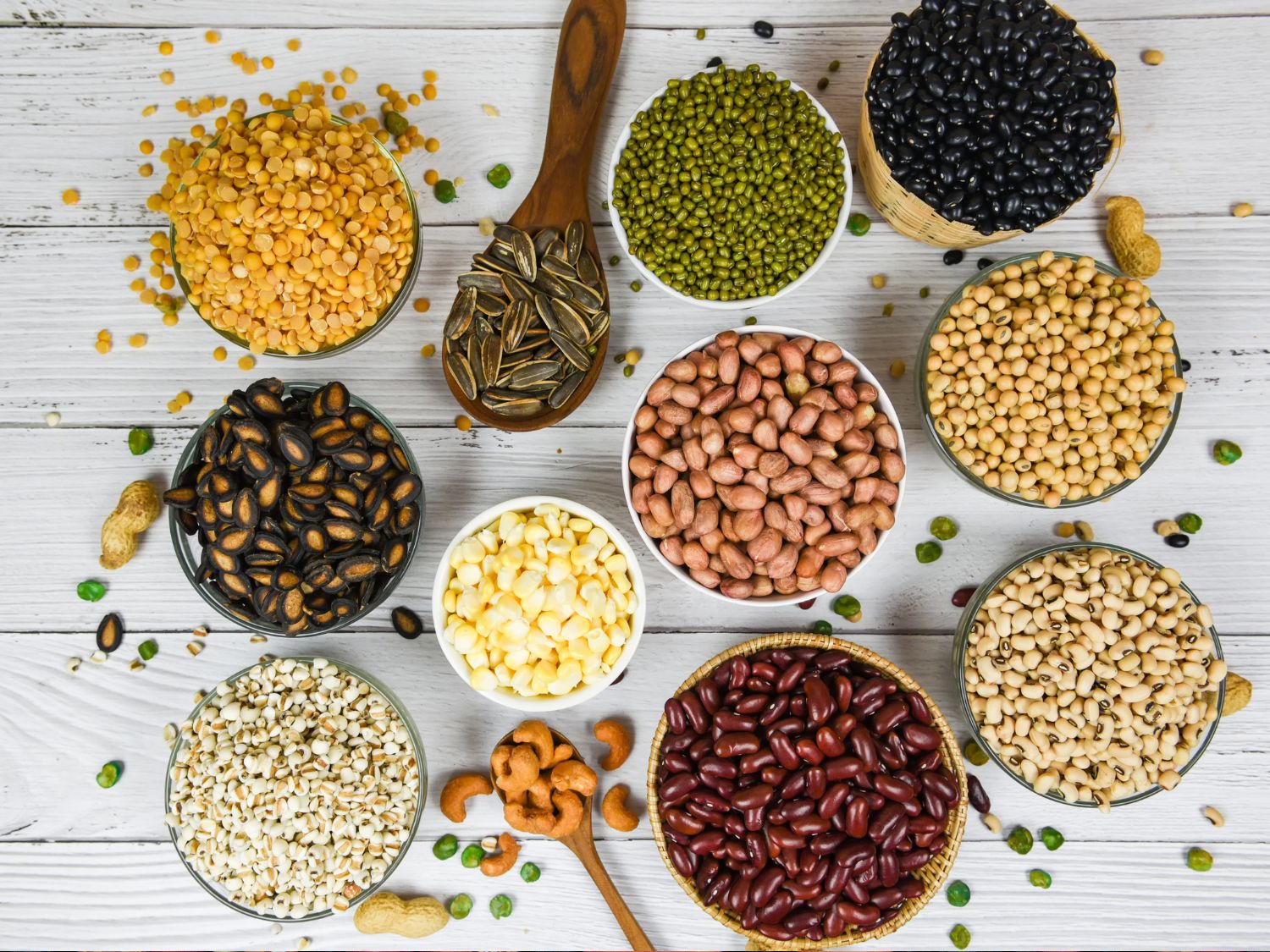
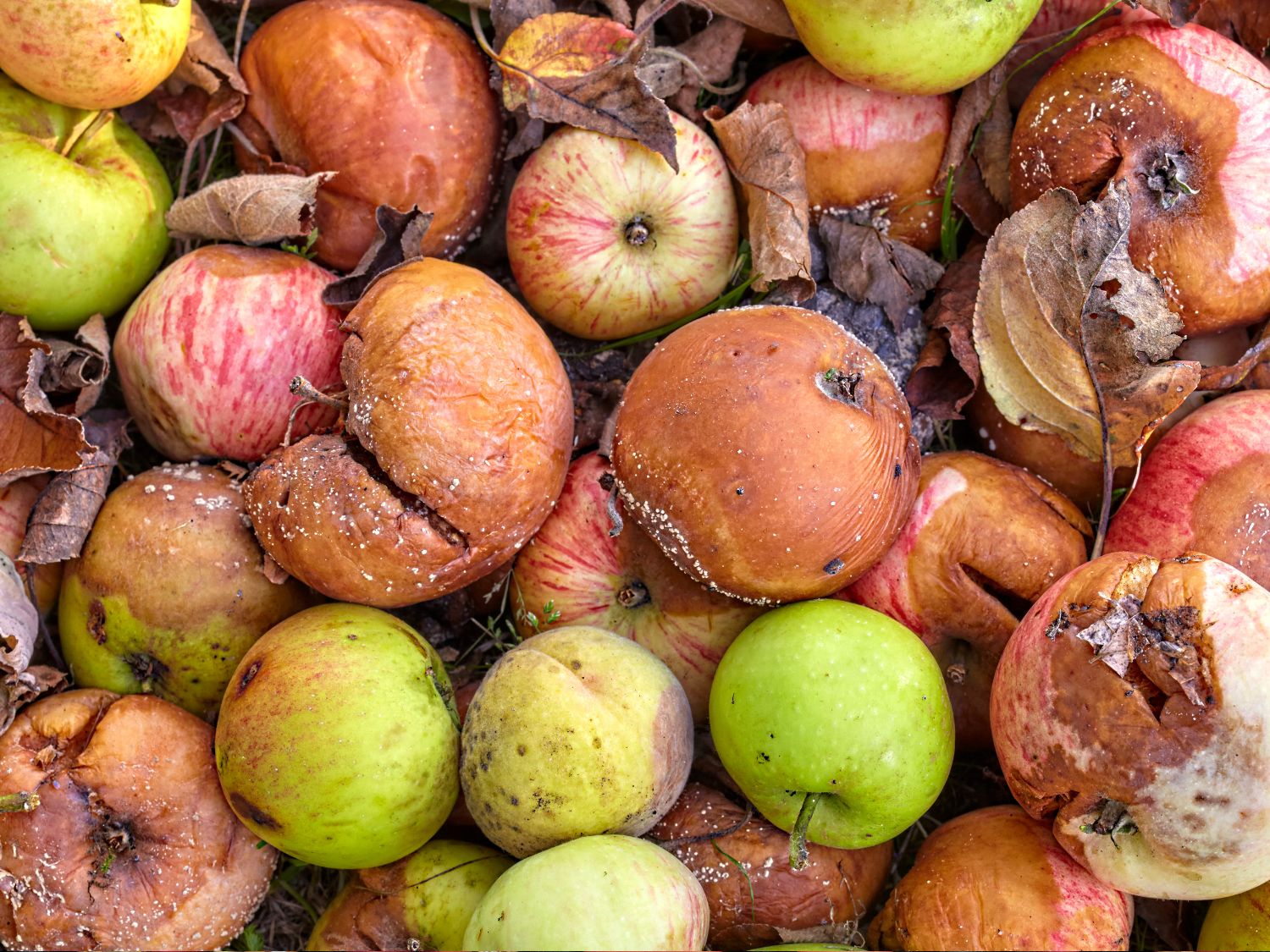

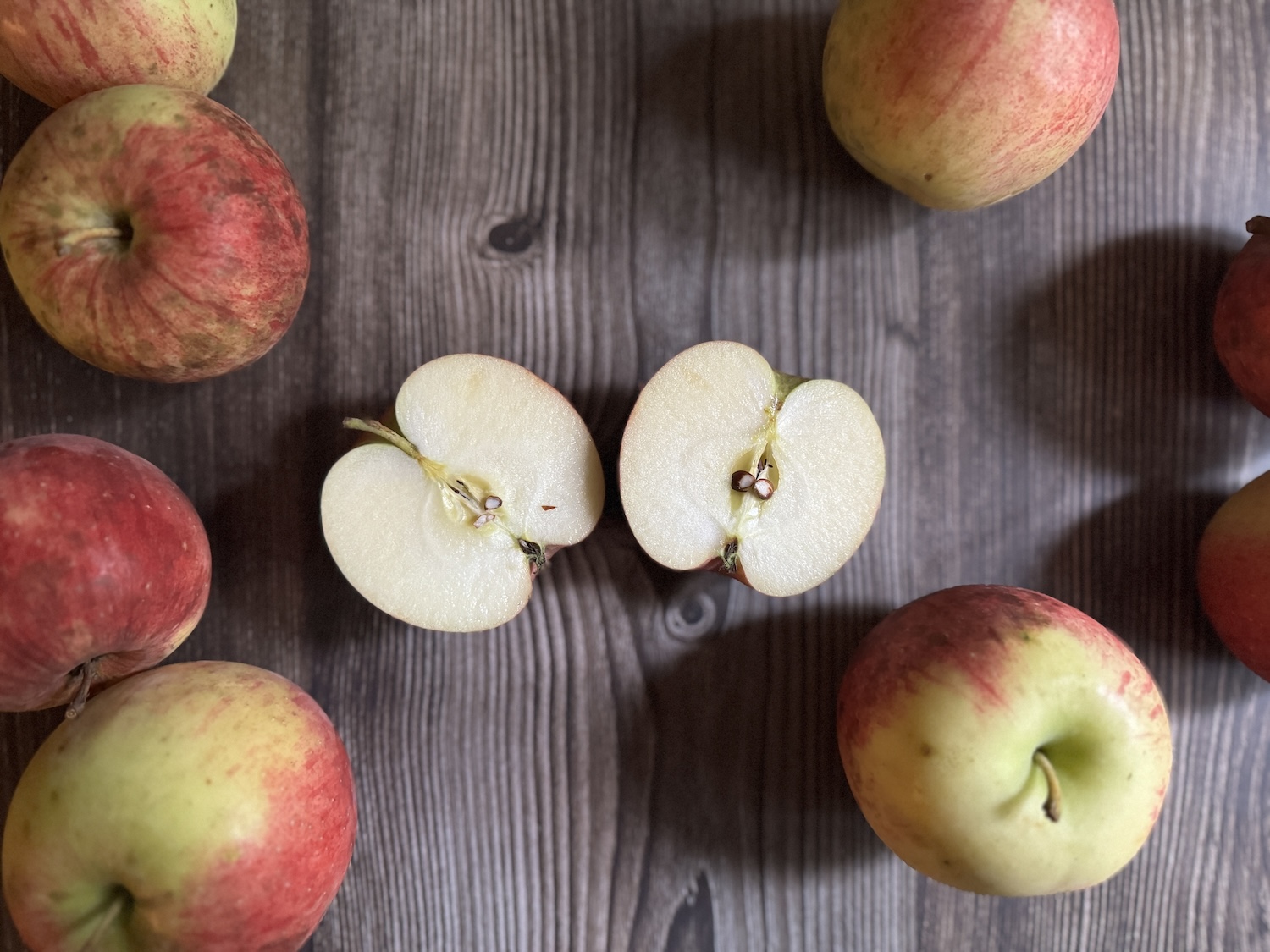
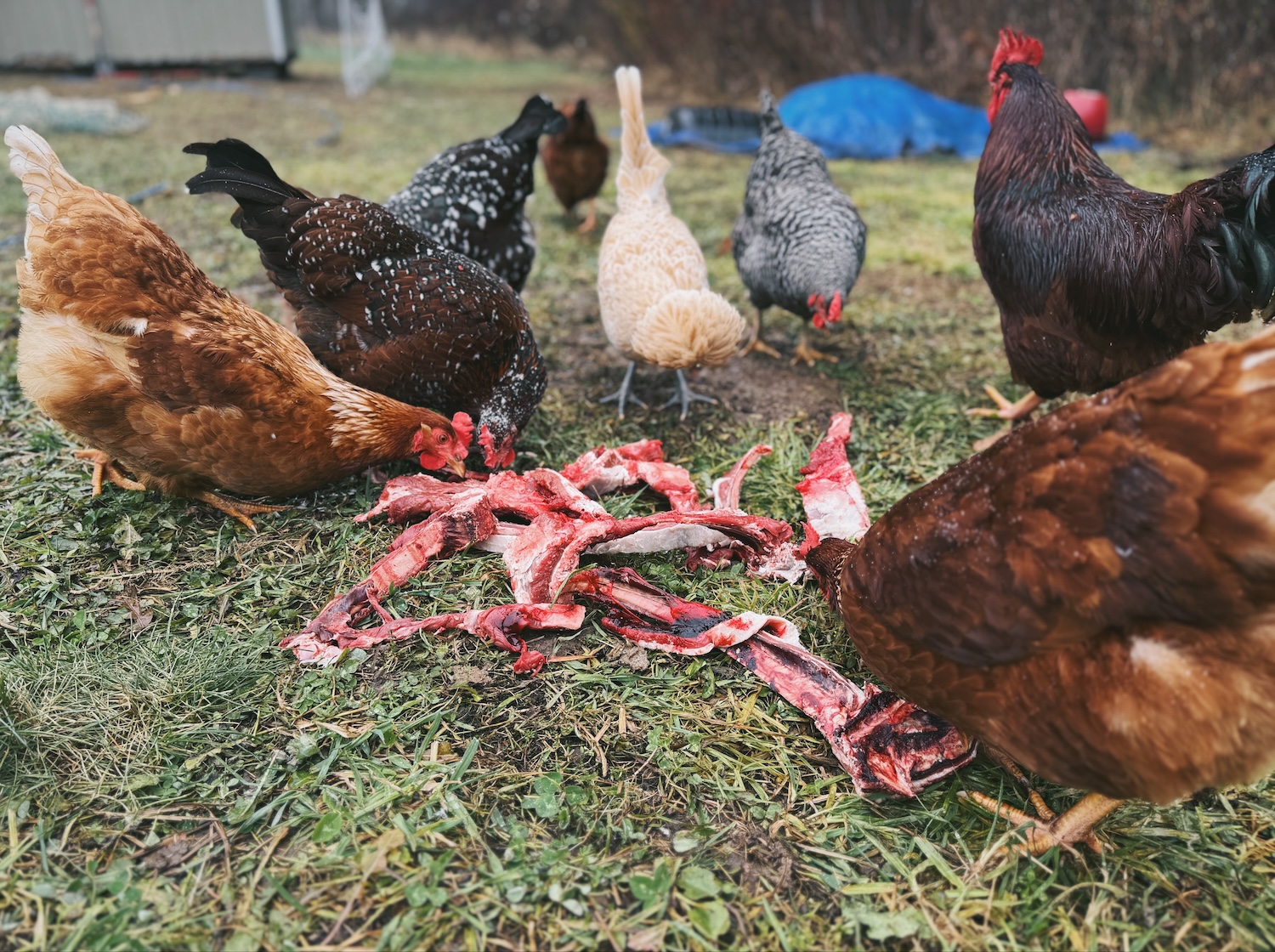


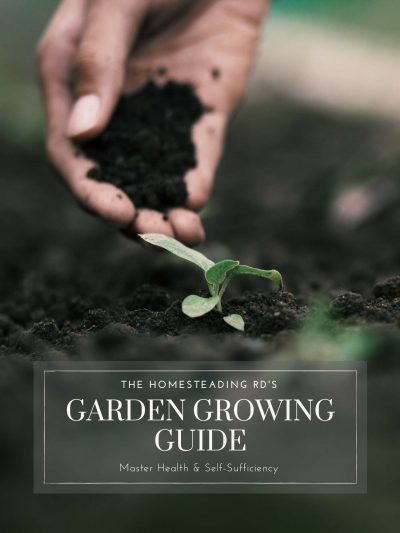
Love the thoroughness here.
Thank you! I’m glad it’s helpful 🙂